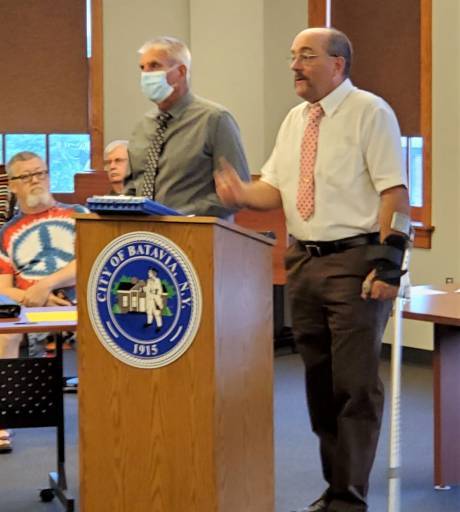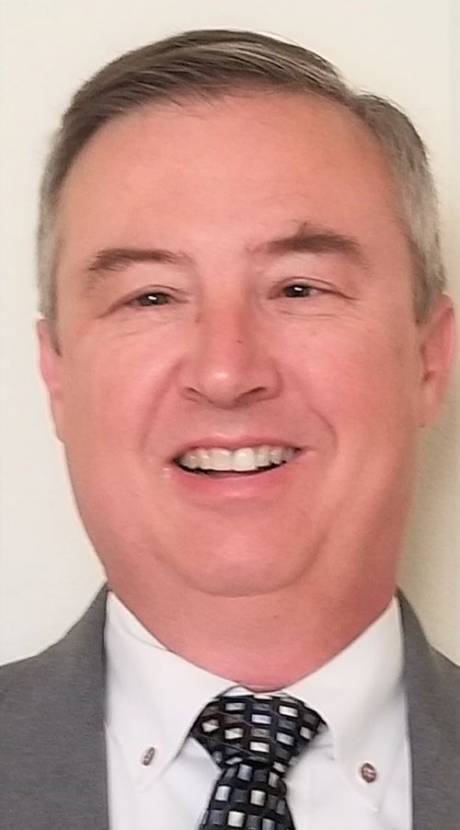City Council agenda includes resolution to create Batavia Police Collaboration Advisory Stakeholder Group
In compliance with Gov. Andrew Cuomo’s executive order on policing reform, the City of Batavia has set the wheels in motion to form a 15-member Batavia Police Collaboration Advisory Stakeholder Group that will assist in drafting a plan based on community input by April 1, 2021.
The executive order, “New York State Police Reform and Reinvention Collaborative,” stipulates that police departments must adopt a plan by the April date to be eligible for future state funding.
The topic is on both the Conference and Business agendas of Monday night’s City Council meeting at City Hall Council Chambers. The Conference meeting will begin at 7 o’clock.
Acting City Manager Rachael Tabelski, in a July 30 memo to City Council, wrote that the governor’s mandate is in “direct response to incidents involving law enforcement officials whereby actions of particular officer(s) resulted in the death of unarmed citizens.”
“The City of Batavia stands in deep sadness and grief over the actions of a few officers who have contributed to a culture of mistrust and divisiveness,” she wrote. “No one deserves to be abused, or treated unfairly, by members of their community and especially not by law enforcement officials.”
In boldface type: “All individuals should be held to the same standard, with no one above the law – whether civilian, law enforcement or government official and those that break the law should be held accountable and prosecuted to the fullest extent.”
Tabelski continued, praising the Batavia police force as “a world-class police department comprised of men and women who take the job of protecting and serving our community very seriously. The Batavia Police Department has and will continue to uphold a high standard of professionalism in themselves and those that serve with.”
According to the resolution to be considered by Council, the advisory group will consist of the following:
- City manager;
- Police chief;
- Assistant police chief;
- City attorney;
- One City Council member;
- Two citizen representatives;
- Batavia Housing Authority director;
- Director of a not-for-profit that serves human interests (i.e. YWCA);
- District attorney representative;
- Public defender representative;
- Batavia Police Benevolent Association representative;
- Batavia City School District superintendent;
- Community religious leader;
- Business leader representative.
The role of the advisory group, per the memo, is to review current police department policies, procedures and training initiatives, and to recommend improvements in areas such as community policing, response, crime prevention through environmental design and training enhancements.
“The goal of the Group will be to build upon the current policies adopted by the Department, that meet or exceed industry standards and best practices, and to build further relationships within the community,” Tabelski wrote.
According to supporting documentation for Monday’s meeting, the Batavia Police Department has already met or exceeded about a dozen standards or initiatives spelled out in Cuomo’s executive order.
Those include updates of use of force policy, standards of conduct/community relations/biased based policing and training, law enforcement diversion programs, restorative justice practices, community outreach, hot-spot policing, focused deterrence (specialized patrols) and violence prevention, and the department is in the process of being accepted into the NYS Accreditation Program.
The timetable for advisory group activities lists Sept. 1st as the deadline for the committee’s formation (applications will be accepted at the city manager’s office), schedule regular meetings beginning in September, draft presentation of the plan to Council in January, public comments in February and final version of the plan in March.
In other developments, Tabelski:
-- Will share details of a July 29 memo to Council that projects a $1.18 million loss to the City of Batavia due to the COVID-19 pandemic and economic shutdown in the state. That number is significantly less than the April projection of a $2.5 million loss in sales tax and other revenue sources.
“(After the first quarter) sales tax and property tax losses were not as severe as originally forecasted,” she reported.
The memo indicates that the city has the potential to save $641,388 as a result of a spending freeze, layoffs and hiring freezes that began in April and the potential to gain $185,524 in revenue when considering Video Lottery Terminal funds ($352,631) and other sources ($79,000) which “will assist in offsetting the anticipated reduction in AIM (Aid and Incentives to Municipalities) aid in the amount of $246,107.”
Subtracting the potential receipts from the $1.18 million in projected revenue loss, the current shortfall comes to $357,585.
-- Will recommend paying $750 per month stipends, effective July 1, to Dawn Fairbanks, human resource specialist; Lisa Neary, director of finance, and Lisa Casey, confidential secretary to the city manager, for additional duties they have taken on since the departure of former City Manager Martin Moore.
Tabelski moved from Assistant City Manager into the Acting City Manager role on June 22.
As a result, she wrote in a memo dated July 30, Fairbanks, Neary and Casey assumed some of the duties assigned to the assistant manager, including implementation and management of projects pertaining to software applications, information technology, fiber network connections, flood zone communications, risk management and Bond Anticipation Notes for future capital projects.



